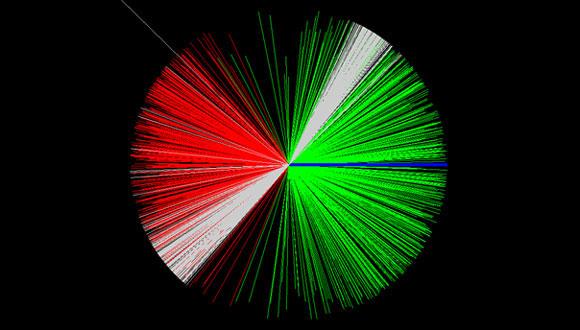Joint Seminar in Nuclear Physics
Zoom: https://huji.zoom.us/j/86307696195?pwd=QVR5WlI1d3plNFltdUdmWVZCOHNJdz09
PROGRAM:
14:30 - 14:45 - Refreshments
14:45 - 15:45 - "Precise and accurate theory of nuclear beta decays as Standard Model tests", Doron Gazit, Hebrew University of Jerusalem
Abstract:
Precision measurements capture an increasing amount of attention in probing physics beyond the Standard Model (BSM). Worldwide, a multitude of experiments aim at reaching high precision, ~0.1% , and will have comparable control over systematic uncertainties. By this, these experiments will surpass LHC constraints on models of BSM physics.
These efforts entail a need in Standard-Model predictions of the pertinent beta-decay observables of comparable accuracy. In this talk I will describe the theoretical efforts, which focus on identifying, characterizing and quantifying uncertainties in the challenging realm of nuclear physics as a strongly interacting effective field theory of QCD. This involves consideration of corrections that have not previously been thoroughly investigated, e.g., the effect of the nuclear finite size on Coulomb interactions, recoil corrections, etc. For many of these an accurate result requires forefront nuclear-structure calculations.
Finally, I will describe the effort at the Hebrew University, which uniquely combines experimental, in Guy Ron's group, and theoretical fronts, in my group, utilizing state-of-the-art methods and covering multiple aspects of BSM physics.
15:45 - 16:15 - Coffee break
16:15 - 17:15 - "The Israeli institute for research of nuclear fusion and hot plasma", Noaz Nissim, The Israeli Fusion Research Institute, Soreq NRC
Abstract:
Nuclear fusion, as a source of clean energy, offers advantages that ensure sustainability and a secure supply: the fuels are widely available and virtually limitless, there is no greenhouse gas production, and it is intrinsically safe due to the absence of risks associated with an uncontrolled chain reaction. With the appropriate selection of materials for the reactor's structure, the radioactivity of the building materials is expected to diminish within a few decades, and they may even be reused in a new reactor.
Research and development of fusion for energy production have been underway worldwide since the 1950s. The two main contemporary fusion research projects are ITER (initially the International Thermonuclear Experimental Reactor, where "iter" means "the way" or "the path" in Latin), an international collaboration involving 35 countries under construction in the south of France. ITER is a TOKAMAK-type magnetic confinement reactor designed as a technological demonstrator for the combustion of DT (Deuterium-Tritium) fuel. The National Ignition Facility (NIF) at the Livermore research center in the USA is another major project conducting research on fusion energy production using inertial confinement with the help of a high-energy laser. The NIF laser comprises 192 beams generating approximately 2 MJ of laser energy in a few tens of nanoseconds, all hitting a target containing DT fuel simultaneously for uniform heating. Both projects are funded with budgets in the order of tens of billions of dollars. In addition, numerous university-scale research projects, and about 40 private companies are involved in fusion research worldwide.
Despite the extensive global efforts in fusion research, Israel has not formally participated in any of the major initiatives. While many countries boast large infrastructures facilitating research on the scientific front of hot plasmas, providing platforms for training generations of scientists in the practical and theoretical aspects of fusion physics, Israel lacks an organized training program on the subject within its universities.
The goals of the institute are to establish an Israeli knowledge center on nuclear fusion for energy purposes and hot plasmas, ensure solid support for research activities covering all scientific and technological aspects of hot plasma and nuclear fusion, promote research providing basic data essential for advancing nuclear fusion applications and plasma science, and foster collaboration between academic research bodies and industry on issues related to nuclear fusion applications for energy needs. The institute also aims to train the future generation of scientists specializing in fusion for energy purposes.


